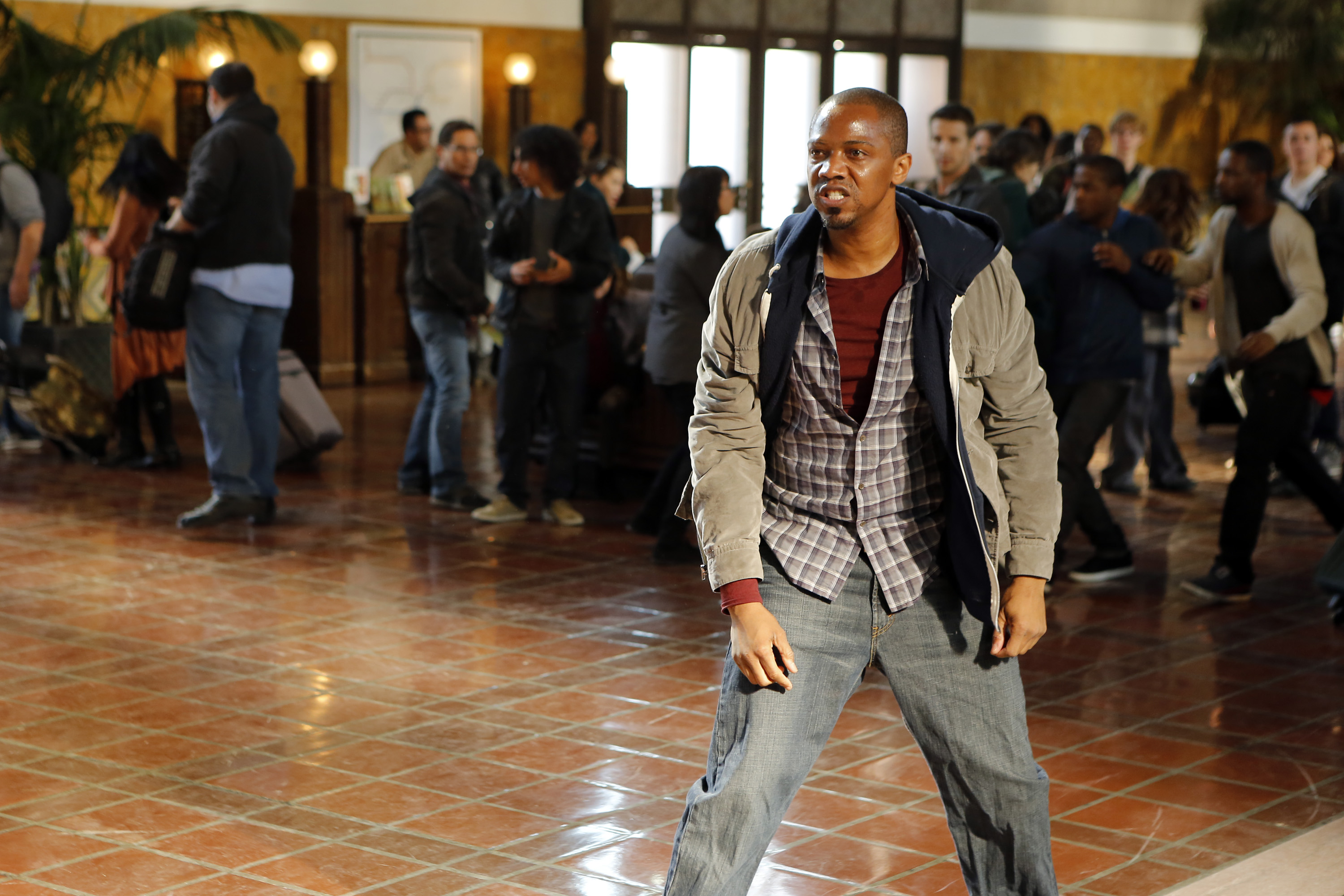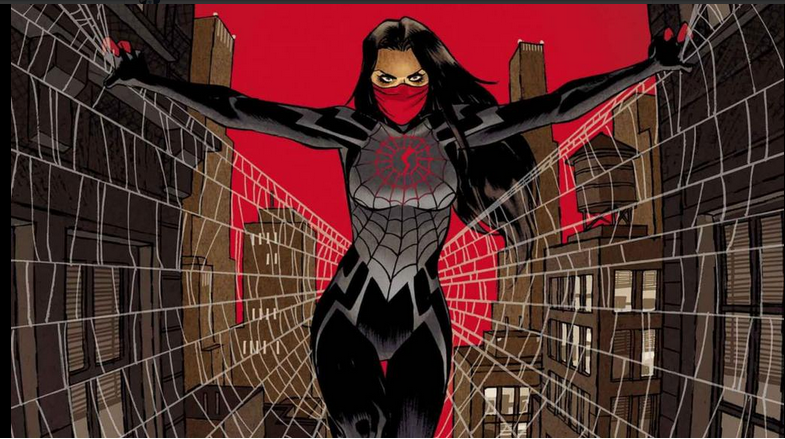Agents of SHIELD starts out as a black superhero story. Mike Peterson (J. August Richards), a laid-off factory worker, is on the street with his son when a building nearby explodes (as they do.) He hears someone screaming for help inside, and uses super strength to smash handholds in the wall, climb up, and save the damsel in distress. He then leaps to the ground and slinks away, covering his head with his hoodie. He’s soon being referred to as the Hooded Hero.

This seemed like an intriguing development. No one had told me that AoS was based around the adventures of a super-powered, single-dad, working-class black man. Even the hoodie — a reference, intentional or otherwise, to Trayvon Martin’s death the year before the pilot aired — seemed potentially positive. The symbol of supposed black criminality reversed and turned into a heroic icon; that could work, maybe. Maybe?
Or then again not so much. As you know if you’ve seen any of the series at all, the Hooded Hero is not the hero. He’s just some schlubby plot point. He never gets to save anyone else. He volunteered to be a guinea pig for an experimental treatment after he was hurt on the job, and his powers are unstable. Soon he’s experiencing uncontrollable rages, beating up his old factory boss, and engaging in kidnapping, assault, and other nefarious super-villainesque deeds. It turns out even the woman he saved wasn’t an innocent, but the evil scientist herself. At the end he gives a speech about how people like him don’t get a fair shake, etc. etc., and the white guy hero without superpowers listens to him sympathetically and calms him down to where he can be ignominiously shot with some sort of sedative for his own good. Yay.
It all seems wearisomely familiar, doesn’t it? For me I was reminded of one of the first comics I think I ever read; an old Flash story from way back in the 1970s. The comic is about Ms. Flash; Patty Spivot is standing in Barry Allen’s lab when (improbably) another bolt of lightning hits, electrifying the shelves of chemicals and giving her superspeed just like Barry Allen had. She too decides to fight crime with her super-speed…except there’s a catch. Her powers are (wait for it) unstable; whenever she runs anywhere, she causes poison gas to seep into the air, or fires to break out. She doesn’t believe that she’s causing the damage, so Barry has to contain her and eventually figure out a way to depower her. Only guys can be Flash; empowered women are too dangerous. End of moral. (It was all an imaginary story anyway, so I guess you could see it as some sort of critique of Barry’s paranoid misogyny, if you felt like being kind.)
Just as the female Flash is a danger to us all, so, in AoS, is the black supehero. The Hooded Hero talks throughout the episode of his desire to be good, and he’s supposed to be a good man confused by the treatment he’s undergone. But that just emphasizes the disconnect between power and blackness. Good white people who get superpowers go off to save the day; the Hooded Hero proves his goodness by recognizing that he can’t do anything but stand there and let the white super-espionage dudes get a clear shot at him with their magic depowering gun.
You could argue I guess that the Hooded Hero doesn’t need to stand in for all black superheroes ever; he’s just one guy, after all. But the show stacks the deck by, inevitably, presenting him as the only black character around. Other than the wearisomely obligatory Asian martial arts expert, the entire SHIELD team is white. (Update: Skye, the superhacker, is bi-racial, with Chinese ancestry.) The climactic surrender scene, then, takes on racial overtones that the show is clearly not prepared to handle. Peterson rails against the giants, the people putting him down — which diagetically are supposed to be the superheroes. But as a lone black man facing a sea of white agents, it reads as a lament about whiteness. In that context, the denoument, in which the solution is for the black guy to trust patiently that the white cops shooting him are beneficent, seems almost unbelievably callous — especially, again, in light of the perhaps accidental but unavoidable resonance with Trayvon Martin.
None of this is particularly surprising given the crappy record of the superhero genre on race…but still, the gratuitous stupidity of it make you shake your head a little. Joss Whedon, who’s supposed to have a brain, directed — and yet, the best he could come up with is a parable about how black men with power need white agents of the state to shoot them for their own good? If this is how the series handles race, maybe it’s just as well that there aren’t any black continuing characters. Erasure is bad, but condescending disempowerment may just be worse.







